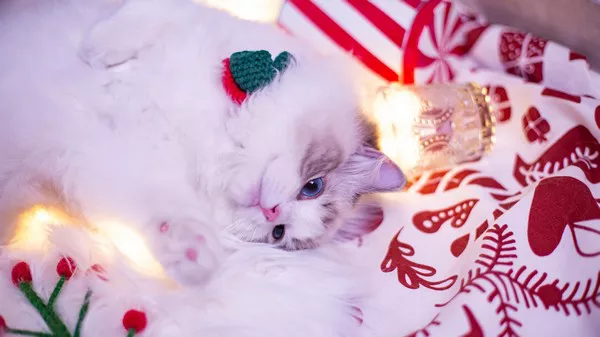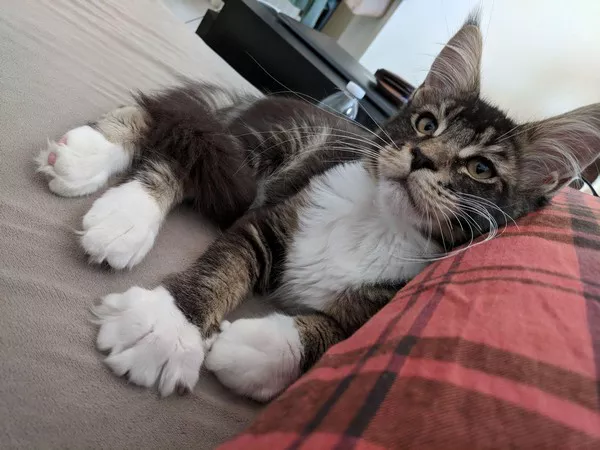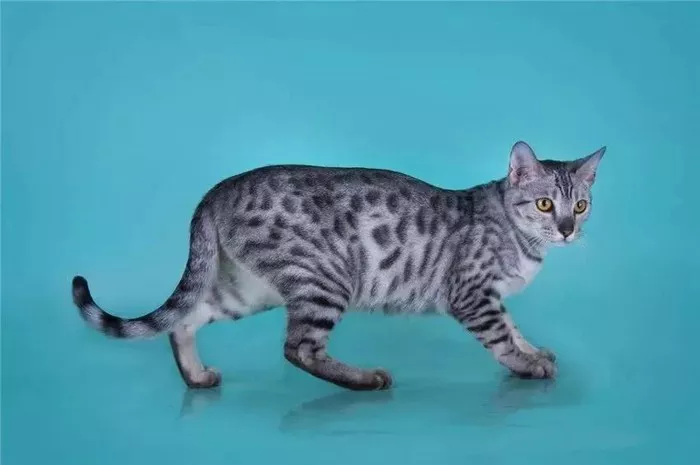Ragdoll cats are known for their gentle disposition, striking blue eyes, and semi-longhair coats. While these beautiful and affectionate felines make wonderful companions, it’s essential for potential Ragdoll cat owners to be aware of the breed’s common health problems. Like all breeds, Ragdoll cats can be prone to certain genetic and hereditary conditions. In this comprehensive guide, we’ll explore the health issues that may affect Ragdoll cats, how to identify them, and steps to take for their well-being.
Understanding the Ragdoll Breed
Before delving into the specific health problems of Ragdoll cats, it’s helpful to understand the breed’s characteristics and unique traits:
Temperament: Ragdoll cats are renowned for their gentle and docile nature. They are often described as “puppy-like” due to their affectionate and sociable personalities. They tend to be highly adaptable to various living environments.
Physical Features: Ragdolls are known for their striking blue almond-shaped eyes, silky semi-longhair coats, and colorpoint patterns on their ears, face, paws, and tail. They have a large, sturdy body with a plush, soft coat.
Size: Ragdoll cats are one of the largest domesticated cat breeds, with males typically weighing between 15 to 20 pounds and females ranging from 10 to 15 pounds.
Grooming: Their semi-longhair coats require regular grooming to prevent matting and tangles. Despite their luxurious fur, Ragdolls tend to shed less than other longhaired breeds.
Common Health Problems in Ragdoll Cats
Ragdoll cats, like all breeds, can be prone to certain health issues. It’s crucial for Ragdoll cat owners and potential adopters to be aware of these conditions to provide proper care and early intervention if necessary. Here are some of the common health problems in Ragdoll cats:
Hypertrophic Cardiomyopathy (HCM): HCM is a heart disease that affects cats, including Ragdolls. It involves the thickening of the heart muscles, which can lead to heart failure or blood clots. Regular veterinary checkups and cardiac screenings are essential for early detection.
Urinary Tract Issues: Ragdoll cats may be more susceptible to urinary tract problems, such as urinary tract infections (UTIs) or feline lower urinary tract disease (FLUTD). Symptoms include frequent urination, straining in the litter box, or blood in the urine.
Gastrointestinal Issues: Ragdolls can be prone to certain digestive problems, including irritable bowel syndrome (IBS) or inflammatory bowel disease (IBD). These conditions can cause diarrhea, vomiting, and weight loss.
Hip Dysplasia: Hip dysplasia is a genetic condition where the hip joint doesn’t develop properly, leading to arthritis and mobility issues. Ragdoll cats may be at risk due to their larger size.
Bladder Stones: Ragdoll cats may develop bladder stones, which can cause discomfort and urinary problems. Dietary management and regular veterinary checkups are crucial for prevention.
Respiratory Infections: Due to their flat faces (brachycephalic features), Ragdoll cats may be more prone to respiratory infections or issues like brachycephalic airway syndrome (BAS).
Obesity: Ragdolls can be predisposed to obesity due to their larger frame. Maintaining a healthy weight through a balanced diet and regular exercise is essential.
Hereditary Diseases: While not exclusive to Ragdolls, some hereditary diseases like polycystic kidney disease (PKD) and certain types of cancer can affect this breed. Regular veterinary care and early detection are critical.
Recognizing the Signs
Identifying health problems in your Ragdoll cat early can make a significant difference in their prognosis and quality of life. Be vigilant for the following signs:
Changes in Appetite: If your cat experiences a sudden change in appetite, whether a loss or increase, it may indicate an underlying issue.
Litter Box Changes: Frequent urination, straining, or blood in the urine can be signs of urinary tract problems.
Vomiting or Diarrhea: Occasional vomiting may be normal, but persistent or severe vomiting and diarrhea should be investigated.
Coughing or Wheezing: Ragdolls may be prone to respiratory issues. If your cat exhibits coughing, wheezing, or labored breathing, seek veterinary care.
Lethargy: A Ragdoll cat’s usual disposition is gentle and affectionate. If your cat becomes unusually lethargic, it could indicate an underlying health issue.
Grooming Changes: Any changes in your cat’s grooming habits, such as excessive grooming or neglecting grooming altogether, may signify discomfort.
Weight Changes: Monitor your cat’s weight regularly. Sudden weight loss or gain can be a red flag.
Behavioral Changes: If your cat’s behavior changes significantly, such as increased aggression, hiding, or avoidance of social interactions, consult your veterinarian.
Preventing and Managing Health Problems
While it’s impossible to prevent all health issues, there are steps you can take to reduce the risk and ensure your Ragdoll cat’s well-being:
Regular Veterinary Care: Schedule routine checkups with your veterinarian to monitor your cat’s overall health and address any emerging issues promptly.
Healthy Diet: Feed your Ragdoll cat a balanced and appropriate diet to maintain a healthy weight. Discuss dietary options and portion control with your veterinarian.
Hydration: Ensure your cat has access to clean, fresh water at all times to prevent urinary tract issues.
Grooming: Regularly groom your Ragdoll cat to prevent matting and hairballs. Brushing their coat also provides an opportunity to check for any skin issues or lumps.
Weight Management: Keep your cat at a healthy weight through portion control and regular exercise. Engage your Ragdoll in interactive play to stimulate both their physical and mental well-being.
Dental Care: Dental health is crucial. Brush your cat’s teeth regularly and consult your vet for professional dental cleanings if necessary.
Stress Reduction: Ragdoll cats thrive on a stress-free environment. Minimize changes in their routine and provide a secure, comfortable living space.
Conclusion
Ragdoll cats are treasured for their loving personalities and striking appearance. While they make wonderful companions, it’s important to be aware of the common health problems that may affect this breed. Regular veterinary care, a balanced diet, hydration, and attentive grooming are key elements in maintaining your Ragdoll cat’s health and well-being. By staying vigilant and addressing any health concerns promptly, you can ensure a happy and healthy life for your beloved feline friend.


























